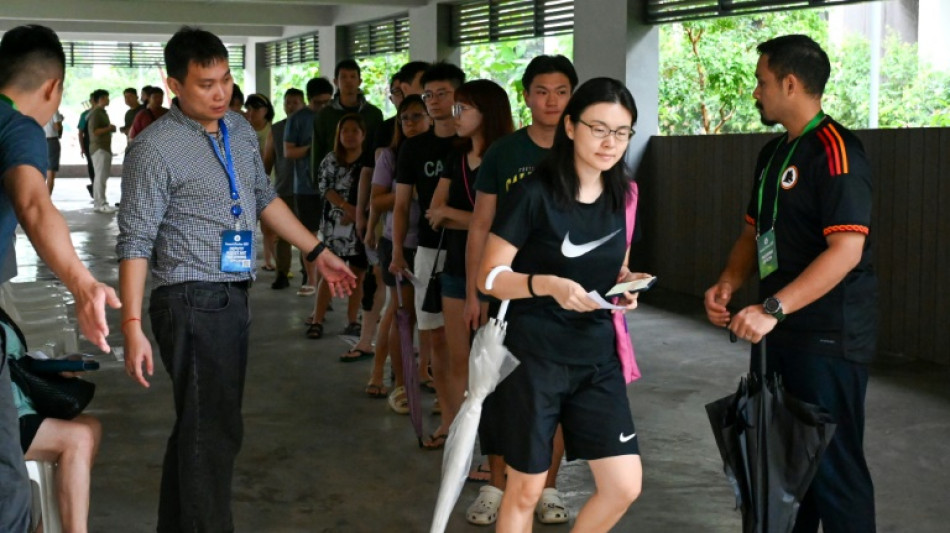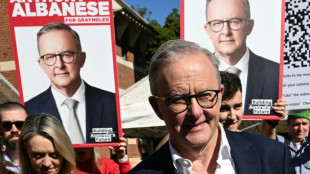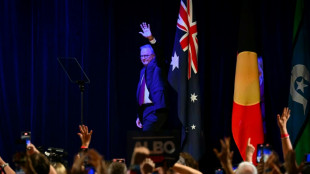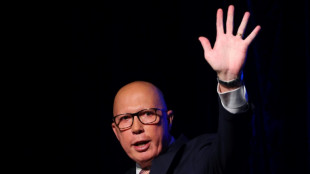

Singapore votes with new PM seeking strong mandate amid tariff turmoil
Singaporeans cast their votes Saturday in an election where Prime Minister Lawrence Wong faces his first major test against a rejuvenated opposition in uncertain economic times for the trade-centred nation.
Wong's ruling People's Action Party (PAP), which has steered the island to prosperity while using an iron hand to suppress dissent, is expected to easily retain a clear majority in parliament.
Polls opened at 8:00 am (0000 GMT) for 12 hours of voting, with some results expected to stream in around midnight.
Popular after leading Singapore's Covid task force, Wong took over last year from his predecessor Lee Hsien Loong, the son of founding premier Lee Kuan Yew who ruled the island state after its bitter break-up with Malaysia in 1965.
Wong has repeatedly said he needed a strong mandate to navigate heavily trade-reliant Singapore through economic uncertainty in light of tariffs levied by US President Donald Trump.
He has warned Singapore would be hit hard if Trump went ahead with the tariffs he announced and then paused for most countries except China, and needed to stay open and competitive to counter their effects.
"So I say to all Singaporeans, please consider carefully. This is not a gamble. This is your family, your future, our Singapore," he said during the campaign.
- 'Steady hand' -
Political analyst Nydia Ngiow said the PAP had long been seen as Singapore's steady hand in crises but that the recent tariff turmoil may not be a big factor for voters yet.
"Given that general elections in Singapore tend to focus on local issues, it is unlikely that geopolitics will shape voters' decisions -- unless Singaporeans feel a direct and tangible impact on their cost of living, job security or the broader economy," she told AFP.
The overwhelming PAP majority in Singapore's unicameral legislature is such a norm in the wealthy island's political landscape that the opposition and its supporters will consider a few more seats gained as a significant victory, observers said.
But the PAP's dominance is increasingly being challenged by a more vocal electorate, especially among younger voters who appear open to alternative political voices.
"Young voters will be a factor in some wards. Unlike the older voters they are prepared to listen to both sides and make an informed decision," said veteran former news editor and political observer P.N. Balji.
- Historical gains -
In 2020, the country's largest opposition group, the Workers' Party (WP), made historic gains, winning 10 of the 93 seats at stake -- a significant jump from its previously held four seats.
The WP -- which has become politically slicker -- is hoping to build on that momentum with a slate of charismatic candidates, including a top lawyer.
The party pulled in massive crowds at its rallies during the campaign, just like in previous elections, but those big numbers have seldom translated into electoral wins in the past.
WP candidates have lambasted the government for raising a goods and services tax amid rising inflation and insist the government has not done enough to curb rising costs in one of the most expensive countries in the world.
They also say more opposition MPs are needed in parliament so that the PAP does not have a "blank cheque" and can be held accountable.
The PAP, however, points to the billions of Singapore dollars it has spent in helping citizens cope with rising costs, including via cash handouts and grocery vouchers.
Singapore has around 2.75 million eligible voters who will elect 97 members of parliament.
G.Moser--SbgTB


